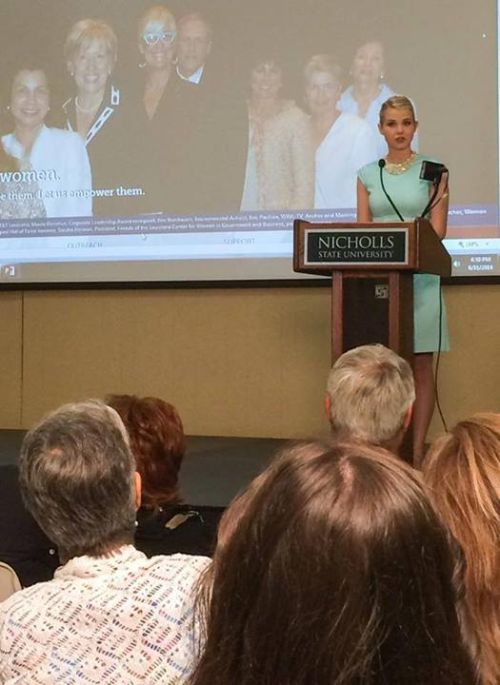St. Pe’ event planned
June 17, 2014OUR VIEW: Elizabeth Smart a profile in courage
June 17, 2014Fourteen-year-old Elizabeth Smart felt tarnished.
“I remember feeling like there was no reason to continue,” she said. “I was broken. I was filthy. I was disgusting. Who could ever want to have anything to do with me ever again?”
Smart was abducted at 14, raped and held captive for 9 months. Her captor assaulted her atop a mass of blankets inside a tent hidden in woods from civilization. She had been scared, and then came an emotion that was worse: shame.
The ordeal could have closeted Elizabeth Smart; instead, at 26 years old, she’s forging change in social and legal apparatuses, leading a national discussion on ultra-sensitive and ultra-personal issues in an effort to draw awareness to and solve issues of child protection.
“I am at a point in my life where I am no longer sorry over what happened,” Smart said. “I’m not sorry that it happened to me because of what it has allowed me to do, because of the people it allowed me to meet, work with, and the change that I’ve been able to see.”
In keynoting the closing ceremonies of the annual Louisiana Girls Leadership Academy at Nicholls State University last week, Smart urged listeners to define and pursue their own wants and push through challenging times.
Smart last year released her memoir, “My Story.” An advocate for child-protection laws, recovery program and societal progress in terms of preventing child abductions, she co-created the Elizabeth Smart Foundation with her husband.
Her captor, Brian David Mitchell, is serving a life sentence in federal prison. Mitchell’s then-wife Wanda Barzee is serving a 15-year sentence for her alleged involvement
Smart keynoted closing ceremonies of the annual Louisiana Girls Leadership Academy, held at Nicholls State University by the Louisiana Center for Women in Government and Business.
Fifty high-school girls from ninth to 11th grade participated in the academy, which culminated in their giving presentations on collaborative service projects focused on energy efficiency. It was hosted by the Louisiana Center for Women in Government and Business.
Smart spliced the harrowing details of an experience that distinguishes her from most Americans with confessions that were charming and relatable – like the time she unknowingly tucked the back of her dress into her underwear at a family function.
The speech focused on rape, a sensitive topic sometimes viewed as a conversational taboo, yet Smart wove an optimistic and welcoming tone as she advised her audience to strive beyond singular events.
When Smart’s captor woke her from a slumber inside her own bed with a knife against her neck, she realized no conversation had prepared her for that moment. Her ongoing work aims to change the national consciousness of child protection.
“I had been told many, many things in school,” Smart said. “I was told, ‘Look both ways when you cross the street. Don’t talk to strangers. Don’t look for lost puppies. Don’t do this. Don’t do that.’ But I was never told what I should do if someone ever tried to kidnap me or take me out of my bedroom.
“I didn’t know that, well, over 80 percent of children who fight back get away.”
Elizabeth Smart addresses an audience as keynote speaker of the Louisiana Girls Leadership Academy, held at Nicholls State University. Smart, 26, was abducted, raped and held captive for 9 months when she was a 14-year-old.









